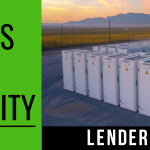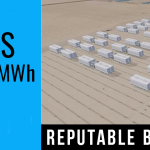
Federal and state officials stressed the importance of energy storage in the clean energy economy and the need for a supportive regulatory environment at the Energy Storage Association’s annual Policy Forum in Washington, D.C.
More than 200 energy storage industry stakeholders and leaders in attendance heard United States Sen. Martin Heinrich announce plans to introduce bipartisan legislation to expand the Investment Tax Credit to include standalone energy storage. He said that Sen. Cory Gardner would co-sponsor the bill.
“The deployment of storage needs to be at the center of our ongoing effort to move toward a cleaner and more reliable electrical grid,” Heinrich said. “We know that renewables grow from strong and enduring tax policy and I am proud to announce that I will soon be reintroducing the Energy Storage Tax Incentive and Deployment Act.”
In 2018, cities and states across the country set ambitious targets to reach 100% clean energy, and energy storage will play a key role in helping them reach those goals. Keynote speaker Neil Chatterjee, chairman of FERC, discussed regulations that open the markets for storage to compete on a level playing field with other technologies. Specifically, FERC Order 841, which will be implemented in 2019, could dramatically boost the market for investment in energy storage.
“I believe in the potential of storage to be a transformative technology for our grid,” Chatterjee said. “Storage is a game changer. I see exciting potential to lower costs and enhance reliability for customers.”
Storage is already eligible for the federal ITC when paired with solar, but bipartisan, bicameral legislation would clarify the eligibility of standalone storage. In turn, this would level the playing field for all energy technologies and send economic signals that trigger long-term investment in the U.S. The energy storage industry supported over 90,000 jobs in 2017, according to the U.S. Energy and Employment Report, but an ITC would generate even more jobs across the nation. The ITC is scheduled to sunset in 2023, so experts expect more projects to come online in 2019.





